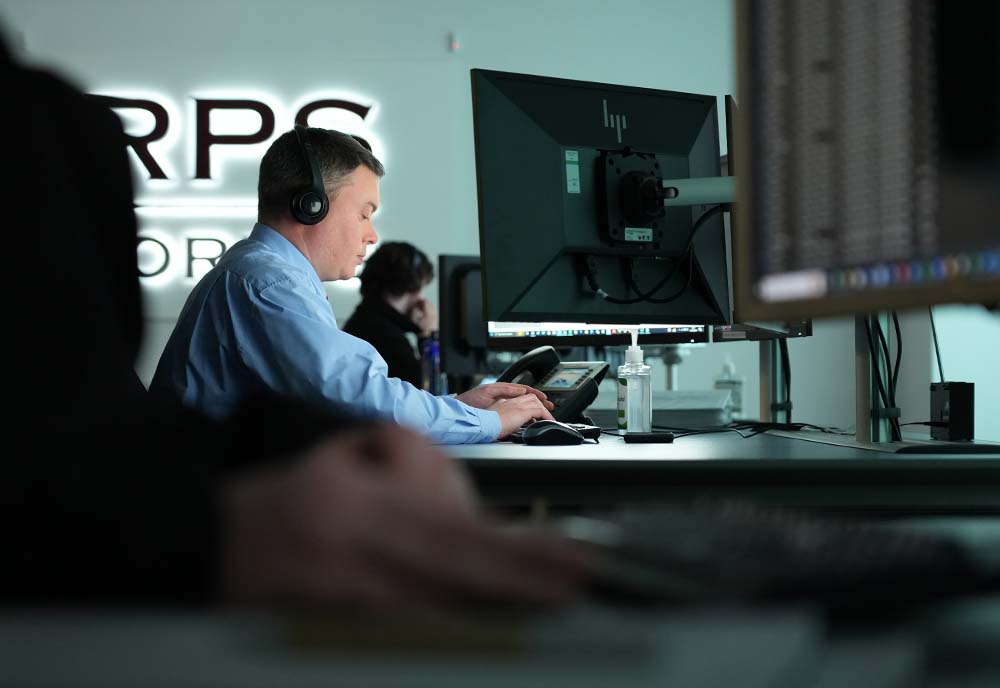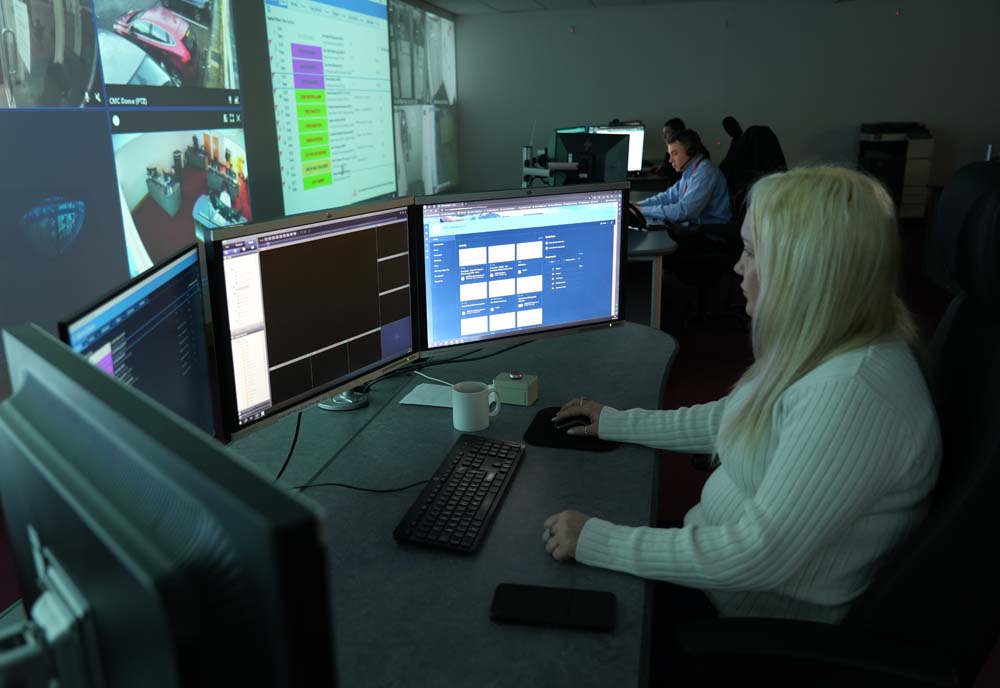Corps Monitoring have secure alarm monitoring centres. These are where are staff monitor cameras and will react to alerts sent through the CCTV monitoring services.
Are CCTV security cameras always monitored?
At Corps Monitoring, the cameras are not watched 24/7. CCTV monitoring services aren’t about paying someone to always watch your cameras. Monitored CCTV works by your system automatically sending a signal to a 24/7 alarm monitoring centre on ‘activation’ i.e., when unauthorised movement is detected on site. This means that, the sensors attached to your CCTV can detect when something isn’t supposed to be there and can send this information quickly and efficiently to our teams.
This helps to guarantee privacy along with CCTV monitoring services, as sites aren’t be watched live. For example, during working hours in your office that is being monitored, your staff can rest easy knowing they aren’t being watched. This helps to instil better employer-employee relationships, as employees feel protected by the CCTV on site, but also trusted, as they are not being watched whilst working.
When is CCTV checked?
The CCTV monitoring services are built so cameras are only checked when an alert goes off. Corps is the largest security monitoring service provider using both artificial intelligence (AI) and analytics in security monitoring (and the first provider to adopt these). The combination of AI and security help to create a system that is both detailed and systematic. Using AI in CCTV monitoring services will make your existing CCTV feed more specific. The analytical data can identify gender, stature, defining features, and even if the observed is left or right-handed. Furthermore, the data can be used to track an assailant around the CCTV system, how they bypassed the security to begin with, and provide detailed evidence to the police for identity purposes.
How do remote alarm monitoring centres work?
The Corps Monitoring alarm monitoring centres work by sending a signal to the teams in the centre that there is unusual or unsafe activity being detected by the security cameras. The teams then react to this signal by assessing the live camera footage and determining whether there is an active threat at your site and deploying the appropriate security response straight away.
How quickly will there be a response to my CCTV?
By using Corps’ CCTV monitoring services, response times are drastically quicker.
Compared to the British Standards (BS) minimum response time of 90 seconds for CCTV checking, Corps Monitoring averages at 20 seconds. Similarly, the BS minimum standard response time for an intruder also sits at 90 seconds, whereas Corps Monitoring’s average response time is 4 seconds. This is a testament to Corps Monitoring’s high-level service to keep buildings and teams safe.
By having CCTV monitoring services implemented within your business locations, you have a higher level of security than unmonitored cameras. Security cameras that simply record footage of an area can only be retrospectively viewed, after the damage is likely to have occurred and the intruder has already left the area. Whereas, with CCTV monitoring services, intruders are more likely to be deterred through use of audio warnings and seeing that immediate action is going to take place.
How does the CCTV camera know what is a threat and what is not?
CCTV cameras are set up with AI sensors that will help to determine what is a threat to your site and what is not. Since the AI systems use motion detection rather than light, it can see more than the human eye can. By integrating this level of technology to your security, you and your clients are joining a worldwide community of organisations that are revolutionising the abilities of security systems and preventing further crime.
Additionally, AI systems are always learning. It will learn how to recognise a false alarm, such as flying birds, small wildlife, or a strong wind. It will even be able to tell the difference between a figure walking past the site compared to someone walking towards the site that has the potential to be a threat. For example, if they are approaching during out of hours times. The future of security is AI, and prioritising this will keep your security levels to the highest standards.


